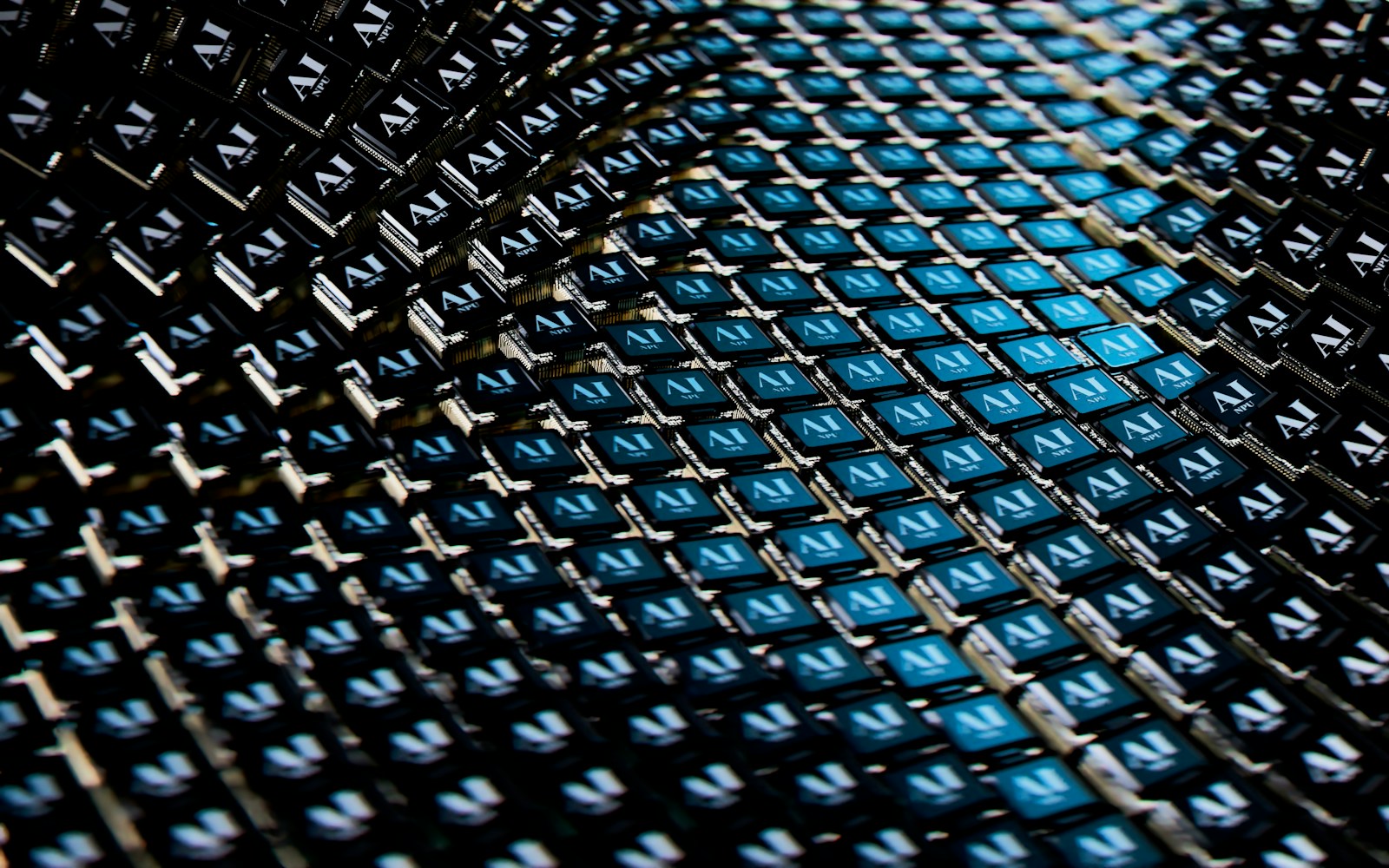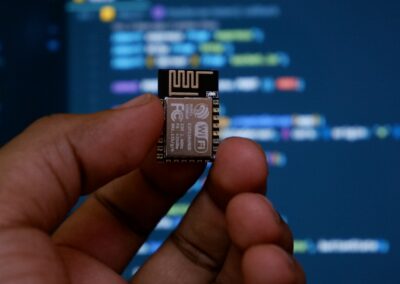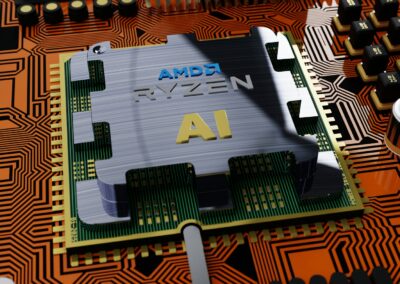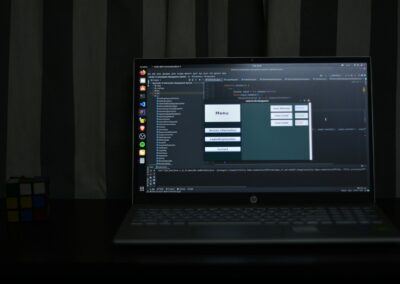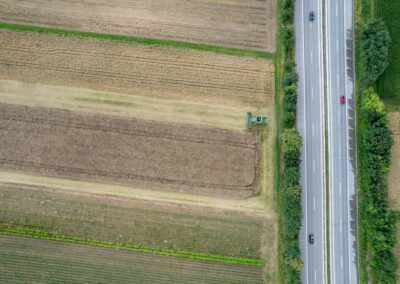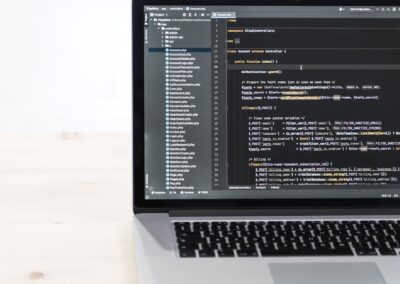Enhancing Operational Efficiency and Scalability
Streamlined Device Configuration and Updates
In the realm of remote device management platforms for large-scale IoT networks, the ability to streamline device configuration and updates is a significant advantage. As cities like Riyadh and Dubai continue to expand their smart city initiatives, managing the multitude of IoT devices deployed across various sectors becomes increasingly complex. Remote device management platforms enable centralized control over device settings and software updates, ensuring consistency and reducing the time and effort required for manual interventions.
These platforms allow administrators to deploy configuration changes and software updates to thousands of devices simultaneously. This capability is crucial for maintaining the performance and security of IoT networks. For instance, a utility provider in Dubai can use a remote management platform to update the firmware of smart meters across the city, ensuring they operate efficiently and securely. This centralized approach not only saves time but also minimizes the risk of errors that can occur with manual updates.
Moreover, remote device management platforms provide real-time visibility into the status and performance of IoT devices. This visibility enables proactive maintenance and troubleshooting, allowing issues to be identified and resolved before they impact operations. For businesses in Saudi Arabia, where maintaining high levels of service reliability is paramount, the ability to monitor and manage devices remotely is a game-changer.
Scalable Infrastructure for Growing IoT Ecosystems
As IoT deployments grow in scale, the infrastructure supporting these networks must be capable of scaling accordingly. Remote device management platforms offer a scalable solution for managing large and diverse IoT ecosystems. This scalability is particularly important in regions like the UAE, where the adoption of IoT technologies is accelerating rapidly.
In Riyadh, for example, smart city projects often involve the deployment of thousands of sensors and devices across transportation, healthcare, and public safety sectors. A remote device management platform can handle the increased load by efficiently managing device registration, authentication, and data collection processes. This ensures that the IoT network can expand without compromising performance or security.
Furthermore, these platforms facilitate the integration of new devices and technologies into existing networks. As advancements in artificial intelligence (AI), blockchain, and the metaverse continue to emerge, remote device management platforms enable seamless integration and management of these technologies. This adaptability is essential for businesses and municipalities aiming to stay at the forefront of technological innovation.
Cost-Effective Management and Maintenance
Cost-effectiveness is another key benefit of remote device management platforms for large-scale IoT networks. Managing a vast array of IoT devices manually can be resource-intensive, requiring significant labor and operational costs. Remote management platforms reduce these costs by automating routine tasks and enabling remote diagnostics and maintenance.
In Dubai, where smart infrastructure projects are integral to the city’s development, reducing operational costs is a priority. Remote device management platforms allow for automated monitoring and maintenance of IoT devices, reducing the need for on-site personnel. This automation not only cuts costs but also improves response times to issues, enhancing overall operational efficiency.
Additionally, the data collected through remote device management platforms can be leveraged for predictive maintenance. By analyzing device performance and identifying patterns, potential issues can be addressed before they lead to failures. This proactive approach minimizes downtime and extends the lifespan of IoT devices, providing further cost savings and improving the return on investment for IoT projects.
Enhancing Security and Compliance
Robust Security Measures and Threat Detection
Security is a critical concern in the deployment of large-scale IoT networks, and remote device management platforms play a vital role in ensuring robust security measures. These platforms provide centralized security controls, enabling consistent implementation of security policies across all devices. This is particularly important in regions like Saudi Arabia and the UAE, where protecting critical infrastructure from cyber threats is paramount.
Remote device management platforms offer advanced security features such as encryption, secure boot, and multi-factor authentication. These features ensure that data transmitted between devices and central systems is secure and that only authorized personnel can access sensitive information. In Riyadh’s smart healthcare projects, for instance, these security measures protect patient data and ensure compliance with regulatory standards.
Moreover, these platforms enable continuous monitoring for security threats and vulnerabilities. By analyzing device behavior and network traffic, potential threats can be detected and mitigated in real-time. This proactive approach to security is essential for maintaining the integrity of IoT networks and safeguarding against cyberattacks.
Ensuring Compliance with Regulatory Standards
Compliance with regulatory standards is a critical aspect of managing IoT networks, particularly in regions with stringent data protection and privacy laws. Remote device management platforms facilitate compliance by providing comprehensive audit trails and reporting capabilities. These features ensure that all actions performed on IoT devices are logged and can be reviewed for compliance purposes.
In the UAE, where regulations such as the Dubai Data Law mandate stringent data protection measures, remote device management platforms help organizations adhere to these requirements. By maintaining detailed records of device interactions and data access, businesses can demonstrate compliance and avoid potential penalties.
Furthermore, these platforms support the implementation of privacy-by-design principles. By incorporating privacy considerations into the design and operation of IoT networks, organizations can protect user data and build trust with their stakeholders. This approach is particularly relevant for smart city projects in Riyadh and Dubai, where public trust is essential for the success of IoT initiatives.
Facilitating Business Continuity and Resilience
Ensuring business continuity and resilience is another advantage of remote device management platforms for large-scale IoT networks. These platforms enable rapid response to disruptions, ensuring that IoT devices remain operational even in adverse conditions. This capability is crucial for maintaining service delivery and operational efficiency in critical infrastructure sectors.
In Saudi Arabia, where extreme weather conditions can impact infrastructure, remote device management platforms provide real-time monitoring and automated failover mechanisms. These features ensure that IoT devices can continue to function and provide essential services even during disruptions. For example, in smart grid projects, remote management platforms can reroute power distribution in response to outages, maintaining stability and reliability.
Additionally, remote device management platforms support disaster recovery planning. By enabling automated backups and remote restoration of device configurations, these platforms ensure that IoT networks can recover quickly from failures. This resilience is essential for maintaining business continuity and minimizing downtime in the event of disruptions.
Conclusion
In conclusion, remote device management platforms for large-scale IoT networks offer numerous advantages, including enhanced operational efficiency, scalability, cost-effectiveness, security, and compliance. By streamlining device configuration and updates, facilitating advanced data management, and ensuring robust security measures, these platforms enable businesses and municipalities in Saudi Arabia, the UAE, and beyond to manage their IoT networks effectively. As technological advancements continue to emerge, remote device management platforms will play an increasingly important role in supporting the growth and success of IoT initiatives.
—
#RemoteDeviceManagement #IoTNetworks #LargeScaleIoT #SaudiArabia #UAE #Riyadh #Dubai #ArtificialIntelligence #Blockchain #TheMetaverse #ExecutiveCoaching #GenerativeAI #ModernTechnology #BusinessSuccess #LeadershipSkills #ProjectManagement









